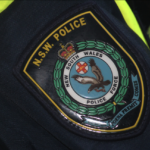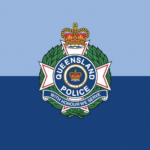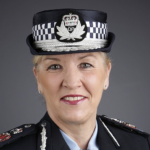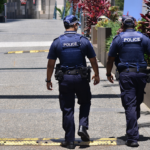Report Confirms Endemic Misogyny and Racism Within Queensland Police Service
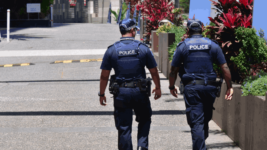
Established in May 2022, the Commission of Inquiry into Queensland Police Service responses to domestic and family violence publicly released its report, A Call for Change, last week. And what began as an investigation into a policing issue, led to a damning appraisal of the culture operating in the QPS.
Early on, the commission indicates that it has found a reluctance amongst certain officers to deal with domestic and family violence incidents, and while it acknowledges that the policing of such offending can be complex, complexities do not inhibit the policing of fraud and drug offences.
Led by Queensland Judge Deborah Richards, the commission further conveyed that it was expecting to hear about under-resourcing and training gaps, but as its public hearings continued, cultural issues within Queensland police began being raised as key contributing factors to the problem.
“Despite the initial protestations” coming from the police commissioner and the police union, the commission found “clear evidence of a culture where attitudes of misogyny, sexism and racism are allowed to be expressed, and at times acted upon”.
And the inquiry further found that “there is a strong perception among the QPS membership that its senior leadership lacks integrity”, along with an accompanying “pervasive culture of fear and silence”, which contributes to “low morale” within the agency and affects all aspects of policing.
“A general distrust of women”
Sexism and misogyny pervade Queensland police, the inquiry found, and women recruits become aware of this as they enter the police academy. Indeed, one female trainer has been warning new trainees for a decade that whilst most male officers are respectful, some are predatory.
How this translates is that sexist language and behaviour is rife in the force, along with sexual harassment, which at times can lead to assaults and in the most extreme cases, male officers have raped female officers.
The report further notes that at an August hearing Queensland police commissioner Katarina Carroll acknowledged these issues existed within the agency, but the top cop further suggested that in comparison with community complaints, she didn’t believe the term “widespread” could be used.
But the commission found there is an underreporting of such conduct within QPS, which is directly due to the culture of silence, and what it determined often happens when a complaint is raised, is that the perpetrator receives minimal action, whilst the person speaking out is shunned and bullied.
And when action is taken, the resolution process applied is not adequate for incidents of such nature and in turn, this serves to underscore that the QPS does not take these matters seriously, so “there is little point in making a report”.
The commission asserts these attitudes and biases against women, which are only fostered by senior management, directly impact upon police response to family and domestic violence incidents, with a “general distrust of women” leading to insufficient investigations and protective actions taken.
The old white boys club
In terms of the QPS and its relationship with First Nations, the inquiry found that against a history of colonial violence, there’s a lack of understanding of historical and contemporary issues on the part of officers, while within Indigenous communities there’s intergenerational distrust and fear of police.
This leads to the on the ground reality where “for First Nations victim-survivors a police station is not a culturally safe place for them to seek assistance or safety”.
But beyond this, the commission identified that racism in general pervades the QPS. And this translates into prejudicial attitudes towards First Nations staff members, as well as bias being expressed towards officers of non-Anglo backgrounds as well.
Again, the same inadequate resolution process is applied to any incidents involving racism, which serves to create the impression that the police agency does not consider racial prejudice to be an issue that needs to be addressed and therefore, speaking out is of little use.
In terms of how these attitudes play out when it comes to the policing of family and domestic violence, the commission found that “First Nations people are both overpoliced and under-policed”, which contributes to the overrepresentation of Indigenous people in the criminal justice system.
“Common police practices, attitudes and beliefs particularly disadvantage First Nations women, who may be misidentified as the perpetrator of domestic and family violence and/or may not be identified or properly supported as a victim-survivor”, the report adds.
The commission further relates that when responding to family and domestic violence incidents, prejudicial attitudes towards women are only compounded when First Nations people, nonwhite people, LGBTIQ people, people with disabilities, the young or the elderly are involved.
Investigating their own
The commission outlines that what is key to reforming the QPS is a “robust conduct and complaints system”, as officers need to be confident that their problem will be adequately dealt with, which does not happen under the current system.
Right now, QPS investigates most of the complaints against it, with oversight from the independent Crime and Corruption Commission (CCC).
Cultural issues are not identified. And 83 percent of complaints are dealt with via the ineffectual resolution process, which was designed to deal with minor matters only.
“The current system should be replaced with an independent Police Integrity Unit which sits within the CCC and independently investigates complaints against police officers,” the report states, adding that an independent implementation supervisor should be established to monitor reform.
Business as usual
A Call for Change makes 78 recommendations to create cultural change in the QPS and in turn, reform the way it’s approaching the policing of family and domestic violence. And these include the suggestions that an independent inquiry implementor and complaints system be established.
In response, the Palaszczuk government stated it would invest $100 million in the implementation of the reforms.
However, premier Annastacia Palaszczuk has appointed Queensland deputy police commissioner Steve Gollschewski to be the special coordinator of police reform. And this announcement was front and centre of the government’s media response to the report.
Gollschewski is a long time QPS officer, who too many, exemplifies the police culture that the report has identified needs reforming. And in undertaking this role, the deputy commissioner will answer directly to the Queensland police minister Mark Ryan, rather than the police commissioner.
And almost as an afterthought, Palaszczuk further announced she’s appointing former Queensland agent general to Britain Linda Apelt as the interim independent implementation supervisor, who’s supposed to monitor the progress the QPS dinosaurs make in changing attitudes they actually hold.



